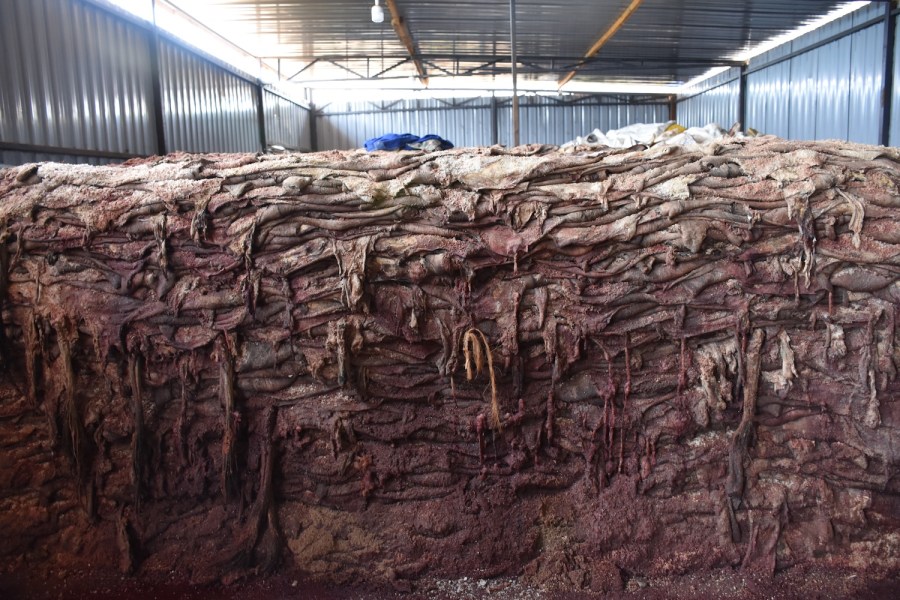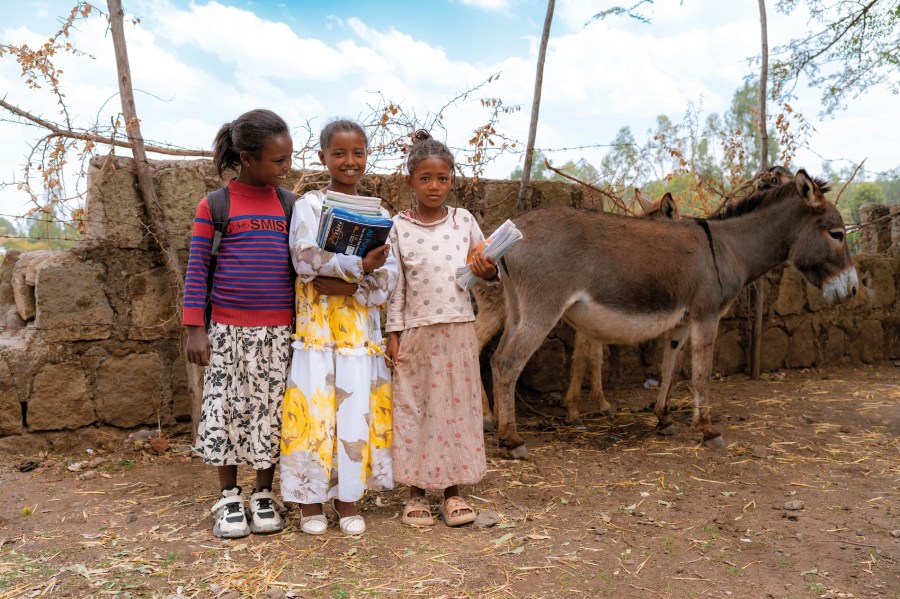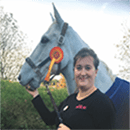A landmark scientific paper is being presented at the Pan-African Donkey Conference today (26 June) that shows the devastating impact the donkey skin trade is having on women and children.
It is responsible for 5.9 million donkeys being stolen and slaughtered every year, leading to loss of income, families being deprived of food and water, suffering physical harm, declining living standards, and loss of education — particularly for young girls.
The event will be attended by African leaders and decision-makers.
It follows the commitment in February 2024 by all Member States of the African Union to impose a moratorium on the slaughter of donkeys for their skin and the development of a continent-wide strategy for their welfare.
Escalating demand for the traditional Chinese medicine ejiao, which is made from donkey gelatine, has led to the near collapse of China’s own donkey population, which was once the biggest in the world.
Now the industry is targeting countries in Africa, Asia and South America.

Babies left at home
In many parts of the world, donkeys can be the difference between modest survival and destitution.
Without a donkey, babies and young children are left alone at home while their mother leaves to collect water because she can’t carry them both on her back.
Instead of going to school, young girls are sent to fetch water.
“The new report Stolen donkeys, Stolen Futures is the first to document in detail the invisible crisis facing Africa’s women and children as a result of escalating demand for ejiao,” said a statement sent to Your Horse.
“Featuring peer-reviewed research, the report reveals donkey theft is rife in rural Kenya.”
The new report will be presented by lead author Dr David Obiero.
“[It] provides strong evidence that the exploitation of Africa’s donkeys is fundamentally eroding progress toward UN Sustainable Development Goals of gender equality and no poverty,” added the statement.
97% stolen
In one region of Kenya, Lakipia, 29 out of 30 women (97%) have had their donkeys stolen.
Donkeys contribute between 60-80% of household income in some African communities.
When that donkey is stolen, it triggers an average drop of 73% in household income in some areas.
The report also includes firsthand accounts of the economic, physical and emotional burden of losing a donkey.
“[When my donkey was stolen] I couldn’t speak; I had no words. The pain was unbearable,” said Esther, a woman in her fifties who works with cart-driven donkeys as a water vendor in Lake View Village, a peri-urban area in Naivasha Town, Nakuru County.
“I had challenges feeding my family, paying for school fees. The kids were chased from school.
“I had to get a loan to replace the stolen donkey. For me the main challenge was that I could not feed my children.”
Lost livelihoods
For Mary, who depends on donkeys to transport farm produce to the market and feed for her dairy cattle, the theft of her donkey has considerably reduced her income.
“The tasks that I used to perform by the aid of the donkey can no longer be done. My harvest is lying on the farm and cannot be transported to the market. I can only carry so much on my back,” she says.
“When I had my own donkey, I could wake up early to transport farm produce and come back home early to do other things.
The other women, just like myself, have lost their livelihoods.
“With donkeys they also used to get income by ferrying farm produce to the market to sell. Without donkeys this is not possible. It’s a big loss.”
Women suffer the most
Josephine, who is in her forties and works with donkeys to transport water for domestic use and to carry goods to the market for trading, said women suffer the most when donkeys are stolen.
“When a donkey is lost, it is the woman in the household who suffers the most due to her responsibilities,” she said.
“I felt a lot of sorrow, like everything was falling apart. I went to search for my donkey in the donkey slaughterhouse in Mogotio. We spent a lot of money in this search and walked long distances.
“We also reported the incident to the local government administrators, but not much help came our way.”
Dire consequences
The new report summarises the impact of the skin trade on Africa’s women and children:
Children denied nutrition
Donkey theft leads to children being deprived of food and water.
A woman without a donkey may be forced to leave her breastfeeding baby behind so that she can carry the load.
Parents living in poverty struggle to provide food, healthcare and essential items for their children, and may be forced to reduce meal sizes or to skip meals entirely.
Physical harm
Without the assistance of a donkey, heavy loads are carried on the woman’s head or back, causing physical injury and deterioration.
This can lead to severe musculoskeletal pain, maternal and foetal health problems, and psychological trauma.
Children, usually girls, denied education
Without a donkey, parents often can’t afford to pay for school fees, uniforms or supplies.
They also can’t spare the labour and day-to-day survival may force them to sacrifice their children’s education.
This burden disproportionately falls to girls, further embedding gender inequality and cementing them into a lifetime of poverty and disadvantage.
Emotional trauma
Women often develop deep and enduring bonds with their donkeys, and many experience profound grief when their donkeys are stolen and slaughtered.
“[One woman] ranked her donkey higher than her spouse in terms of the contribution it makes to the family income and household support,” said Dr David Obiero, a lecturer at Maasai Mara University.
Loss of time
When a donkey is stolen, what was a single trip with a donkey to collect water or supplies becomes multiple trips, and many hours, with the woman carrying the load herself.
Declining living standards and sanitation
Without a donkey, families can struggle to access all the provisions they need. In the case of water, this can lead to health and sanitary problems in families.
Basic provisions fall beyond the reach of families.
‘Time is running out’
Marianne Steele, CEO of The Donkey Sanctuary, said she hopes this report will be a call to action for governments in Africa and around the world to “take decisive steps to end this human and animal welfare disaster”.
Jessica Stark, Chair of the International Coalition of Working Equids, added that “time is running out” for Africa’s donkeys and the women and children who rely on them.
“We hope all member states will seize this chance to put an end to the damage being caused by this unsustainable trade and work towards building a forward-looking strategy that preserves the donkey species for the good of the continent,” she said.
Images and video supplied by The Donkey Sanctuary








